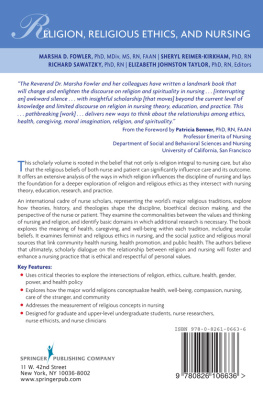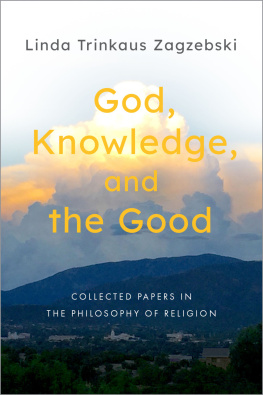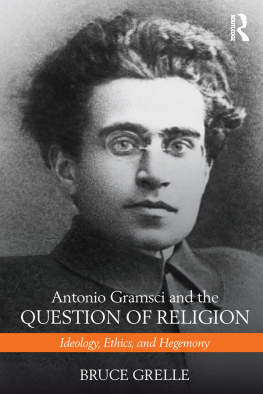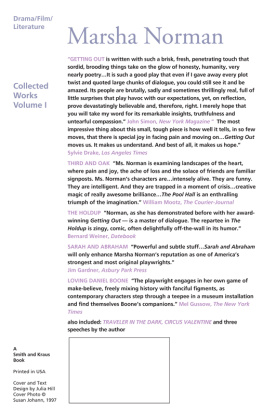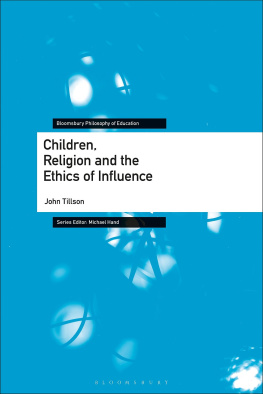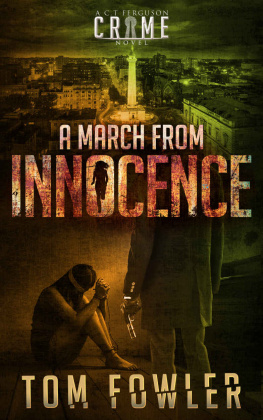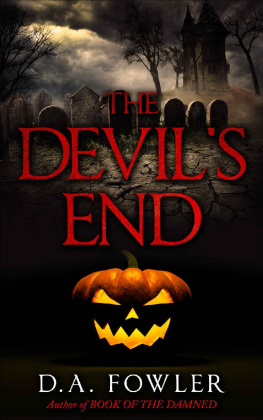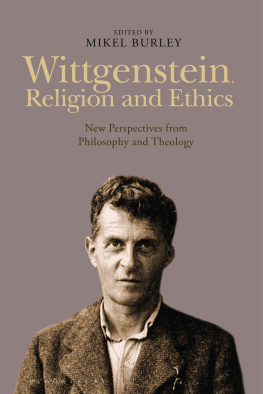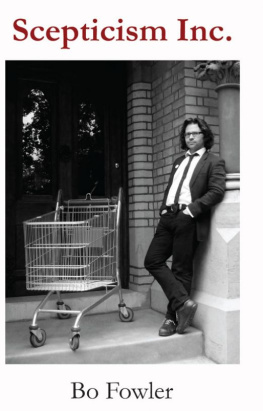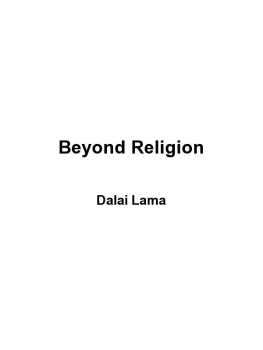Fowler Marsha D - Religion, Religious Ethics and Nursing
Here you can read online Fowler Marsha D - Religion, Religious Ethics and Nursing full text of the book (entire story) in english for free. Download pdf and epub, get meaning, cover and reviews about this ebook. year: 2012, publisher: Springer Publishing Company, genre: Religion. Description of the work, (preface) as well as reviews are available. Best literature library LitArk.com created for fans of good reading and offers a wide selection of genres:
Romance novel
Science fiction
Adventure
Detective
Science
History
Home and family
Prose
Art
Politics
Computer
Non-fiction
Religion
Business
Children
Humor
Choose a favorite category and find really read worthwhile books. Enjoy immersion in the world of imagination, feel the emotions of the characters or learn something new for yourself, make an fascinating discovery.
- Book:Religion, Religious Ethics and Nursing
- Author:
- Publisher:Springer Publishing Company
- Genre:
- Year:2012
- Rating:4 / 5
- Favourites:Add to favourites
- Your mark:
- 80
- 1
- 2
- 3
- 4
- 5
Religion, Religious Ethics and Nursing: summary, description and annotation
We offer to read an annotation, description, summary or preface (depends on what the author of the book "Religion, Religious Ethics and Nursing" wrote himself). If you haven't found the necessary information about the book — write in the comments, we will try to find it.
Religion, Religious Ethics and Nursing — read online for free the complete book (whole text) full work
Below is the text of the book, divided by pages. System saving the place of the last page read, allows you to conveniently read the book "Religion, Religious Ethics and Nursing" online for free, without having to search again every time where you left off. Put a bookmark, and you can go to the page where you finished reading at any time.
Font size:
Interval:
Bookmark:
Any nurse who takes seriously the commitment to care for the whole person should know about this important, one-of-a-kind book that is a major contribution to our profession. In an increasingly multicultural world, an understanding of values and beliefs, ours and those that may differ from our own world view, is more important than ever. According to many polls, the USA is a religious country and every religion is practiced by its citizens. However, nursing has done little to address or incorporate these facts in nursing education and practice. This well-written, informative book can change that. If you strive to be a better student, clinician, researcher, teacher, or administrator, you will greatly benefit from reading this book. I highly recommend it.
Anne J. Davis, RN, PhD, DSc (hon), FAAN
Professor Emerita
University of California, San Francisco
Nagano College of Nursing, Japan
International Consultant, Nursing Ethics
Marsha Fowler and her colleagues are making a new and very important appeal to nursing to see religion not as an extra or external element, but as something inherent in life. By writing not about religion, but from within religious traditions, they show the strengths of all religions to argue and act in socially appropriate ways by holistic and just means, based on the intrinsic sacredness of life. They show how religions and religious ethics underscore the completeness of coherent nursing care and theory. The more I read of this book, the more I realized how different its message is from other books and how this message is significant. Other recent international texts on issues of social ethics have also pointed in the direction of a deeper morality than has been current. Together these texts make a convincing case, and this book has the potential to blaze the way for new understandings of the need for and the delivery of care, in particular nursing care. I hope the book will catch the imagination of nurses everywhere and that people run with its message.
Verena Tschudin, RN, PhD
Visiting Senior Fellow
University of Surrey
Guildford, United Kingdom
The reader of this exceptionally well-written book will find that classical dialogues, as well as a more contemporary expos of philosophies and theories, that have shaped and continue to shape nursing practice, are expertly discussed. The editor and the authors are some of the top thinkers in the field, providing a level of intellectual stimulation that will enhance new heights in critical thinking about the epistemological origins of ideas in nursing. It is a book of a coherent set of chapters written to raise as many profound questions as it answers. I expect that nursing science and its theoretical basis will be profoundly influenced by the analyses provided in this volume and the promise that it holds. Kudos to Dr. Marsha Fowler!
Afaf Ibrahim Meleis, PhD, DrPS (hon), FAAN
Margaret Bond Simon Dean of Nursing
University of Pennsylvania School of Nursing
Professor of Nursing and Sociology
Director of the Schools WHO Collaborating Center for Nursing
and Midwifery Leadership
University of Pennsylvania
Religion, Religious Ethics, and Nursing finally gives voice to a thoroughly thoughtful and important scholarship that will transform our collective capacity for meaningful dialogue and robust theoretical development. This articulate and scholarly anthology reclaims the middle ground that has been missing from the spirituality discourse in modern nursing literature. Recognizing the centrality of sacred text and tradition as foundational to the human experience of cultures and communities across history and place, it invites an integrative and authentic respect for world religions and for the powerful role they play in shaping the health and illness experience. In their delightful polyvocality, the authors illuminate a profoundly shared moral core, one of reverence for the kinds of questions that all religions confront about the meaning of life and death, the purpose of human suffering, and the value of compassionate engagement.
Sally Thorne, RN, PhD, FCAHS
Professor, School of Nursing
University of British Columbia
To provide a broad and comprehensive view of world religions with a special emphasis on their relevance to health, illness, death, and dying is not a task for the faint-hearted. It is an undertaking that must be approached with great caution lest it fall into the marshes of essentialism and meaningless generalities. So it was not without trepidation that I approached this 19-chapter tome. To my great relief I discovered a sophisticated and highly pertinent analysis of the state of contemporary religion, a critique of the deafening silence in nursing on religion, and a meaningful sweeping look at the worlds major religions. There is no cookbook presented here, nor are there trite excursions into transculturalism. Rather, this text teaches about religion and religious beliefs, makes a sustained argument for religion as a positive and as yet untapped force for nurses and nursing, and refreshingly looks the counter arguments straight in the eye and takes them on.
Sioban Nelson, Dean and Professor
Lawrence S. Bloomberg Faculty of Nursing
University of Toronto

Religion, Religious Ethics, AND Nursing

Marsha D. Fowler, PhD, MDiv, MS, RN, FAAN, teaches in Southern California, United States, where she is a professor of Ethics and Spirituality. She is a past chairperson of both the California Nurses Association and American Nurses Association ethics committees and was a member of the Task Force for the Revision of the Code of Ethics for the American Nurses Association. She has numerous publications: peer-reviewed journal articles, book chapters, and books on ethics, bioethics, religion, and spirituality in nursing. Her educational background includes a PhD in Religion & Social Ethics, a Master of Divinity degree, a Master of Science degree (Nursing), and a diploma in Spiritual Direction. She has been a Joseph P. Kennedy, Jr. Fellow in Bioethics at Harvard University and a WK Kellogg Foundation National Leadership Fellow. In 1992, she received the American Nurses Association Honorary Human Rights Award. In 1996, she was the recipient of the Friends World Committee for Consultation Bogert Fund Award for the Study and Practice of Christian Mysticism. She is a fellow of the American Academy of Nursing and currently serves as the Chair of the Academys Expert Panel on Global Nursing and Health. She is a clergy member of the Presbyterian Church (USA). She has lectured extensively both nationally and internationally, including Russia, the United Kingdom, Jordan, Colombia, Canada, Japan, and South Korea. Her areas of research include ethics in nursing, suffering, religion in nursing, health disparities, and health policy in global health.
Sheryl Reimer-Kirkham, PhD, RN, is a professor in the School of Nursing at Trinity Western University, Langley, British Columbia, Canada. She is the Director of the graduate nursing (MSN) program and teaches Health Care Ethics, Health Policy, and Qualitative Research. Her research program focuses on social justice and pluralism in health care and nursing education. A current funded research project examines religion, spirituality, culture, gender, and place in home health care. She is a founding member of Trinity Western Universitys Religion in Canada Institute and Institute of Gender Studies, and the Critical Research in Health and Health Inequities Unit at the University of British Columbia. She has recently been awarded a 2010 Award of Excellence in Nursing Research by the College of Registered Nurses of British Columbia.
Next pageFont size:
Interval:
Bookmark:
Similar books «Religion, Religious Ethics and Nursing»
Look at similar books to Religion, Religious Ethics and Nursing. We have selected literature similar in name and meaning in the hope of providing readers with more options to find new, interesting, not yet read works.
Discussion, reviews of the book Religion, Religious Ethics and Nursing and just readers' own opinions. Leave your comments, write what you think about the work, its meaning or the main characters. Specify what exactly you liked and what you didn't like, and why you think so.

